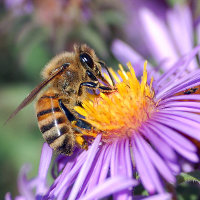Clammy Locust (Robinia viscosa Vent.)
Page contents
↑Range - Expand
| Legend | Color |
| Introduced or Not Present | |
| Introduced | |
| Native or Introduced | |
| Native or Introduced or Not Present | |
| Native | |
| Native or Not Present |
This tentative map is based on our own research. It may have limited data on Canada and/or Mexico, and there is some subjectivity in our assignment of plants as introduced vs. expanded. Read more in this blog post.
Although this plant occurs somewhere in each of these regions, it may only occur in a small part of some or all of them.
This species represented a difficult subjective judgment call. It is widely planted as an ornamental and has escaped and formed new populations, but these are for the most part discontiguous with its native range, and this species is uncommon in the parts of its native range closest to its new range, and shows no evidence of increasing there. As such we have classified new populations as Introduced, but they could perhaps also be classified as Expanded because there are places where the new range is only separated from the native range by relatively small distances.
↑Links & External Resources
• Robinia viscosa (clammy locust) | USDA PLANTS Database (About This Site)
• Robinia viscosa | Go Botany (About This Site)
• Clammy Locust | iNaturalist (About This Site)
• Robinia viscosa | Biota of North America Project (BONAP) (About This Site)
• Robinia viscosa Michx. ex Vent. | Plants of the World Online (POWO) (About This Site)
• Robinia viscosa | NatureServe Explorer (About This Site)
• Clammy Locust | Maryland Biodiversity Project (About This Site)


